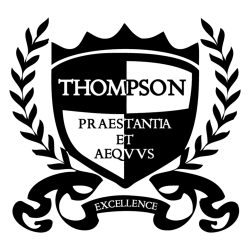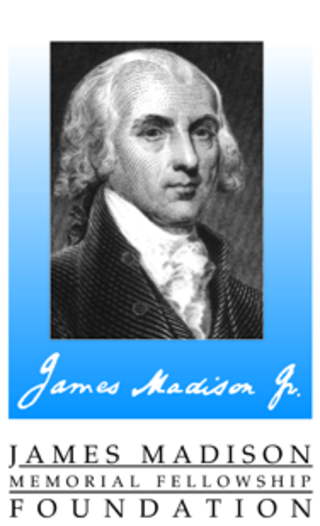
Postgraduate education, graduate education, or graduate school consists of academic or professional degrees, certificates, diplomas, or other qualifications usually pursued by post-secondary students who have earned an undergraduate (bachelor's) degree.
A Bachelor of Education is an undergraduate academic degree which prepares students for work as a teacher in schools. A Bachelor of Education program typically lasts three to four years and combines both coursework and practical experience in educational settings. The curriculum is designed to provide foundational knowledge in pedagogy, educational psychology, teaching methodologies, and subject-specific training. Graduates of this program are equipped with the skills necessary to foster a supportive and effective learning environment for their students.
An internship is a period of work experience offered by an organization for a limited period of time. Once confined to medical graduates, internship is used practice for a wide range of placements in businesses, non-profit organizations and government agencies. They are typically undertaken by students and graduates looking to gain relevant skills and experience in a particular field. Employers benefit from these placements because they often recruit employees from their best interns, who have known capabilities, thus saving time and money in the long run. Internships are usually arranged by third-party organizations that recruit interns on behalf of industry groups. Rules vary from country to country about when interns should be regarded as employees. The system can be open to exploitation by unscrupulous employers.
A fellow is a concept whose exact meaning depends on context. In learned or professional societies, it refers to a privileged member who is specially elected in recognition of their work and achievements. Within the context of higher educational institutions, a fellow can be a member of a highly ranked group of teachers at a particular college or university or a member of the governing body in some universities; it can also be a specially selected postgraduate student who has been appointed to a post granting a stipend, research facilities and other privileges for a fixed period in order to undertake some advanced study or research, often in return for teaching services. In the context of research and development-intensive large companies or corporations, the title "fellow" is sometimes given to a small number of senior scientists and engineers. In the context of medical education in North America, a fellow is a physician who is undergoing a supervised, sub-specialty medical training (fellowship) after having completed a specialty training program (residency).
A medical school is a tertiary educational institution, professional school, or forms a part of such an institution, that teaches medicine, and awards a professional degree for physicians. Such medical degrees include the Bachelor of Medicine, Bachelor of Surgery, Master of Medicine, Doctor of Medicine (MD), or Doctor of Osteopathic Medicine (DO). Many medical schools offer additional degrees, such as a Doctor of Philosophy (PhD), master's degree (MSc) or other post-secondary education.
Math for America (MfA) is a nonprofit organization, founded in January 2004 by American billionaire mathematician, hedge fund manager, and philanthropist Jim Simons to promote recruitment and retention of mathematics teachers in New York City secondary schools.

City Year is an American education nonprofit organization founded in 1988. The organization partners with public schools in 29 high-need communities across the US and through international affiliates in the UK and Johannesburg, South Africa. City Year teams are made up of 18 to 24 year olds, who provide student, classroom, and whole school support, intended to help students stay in school and on track to graduate high school. City Year is a member of the AmeriCorps national service network, and is supported by the Corporation for National and Community Service, school district partnerships, and private philanthropy from corporations, foundations and individuals.

The NYC Teaching Fellows is an alternative certification program that focuses on education quality in New York City public schools by attracting mid-career professionals, recent graduates, and retirees from all over the country. The program provides teacher training, coursework, and resources. Fellows are eligible for a fast track into full-time teaching positions in New York City public schools following pre-service training.

The New York State Education Department (NYSED) is the department of the New York state government responsible for the supervision for all public schools in New York and all standardized testing, as well as the production and administration of state tests and Regents Examinations. In addition, the State Education Department oversees higher education, cultural institutions such as museums and libraries, vocational rehabilitation, and the licensing of numerous professions. It is headed by the Board of Regents of the University of the State of New York (USNY) and administered by the Commissioner of Education.
A teaching fellow is an individual at a higher education institution, including universities, whose role involves teaching and potentially pedagogic research. The work done by teaching fellows can vary enormously from institution to institution, depending on the requirements and position of individual institutions.

Myron B. Thompson Academy, commonly referred to as Thompson Academy or MBTA, is an e-learning institution operating as a "New Century Public Charter School" under the Hawaiʻi Department of Education. Thompson Academy is the result of a white paper study developed by the school's principal, Diana Oshiro, detailing the feasibility of a school delivered over the internet. Established in 1999 as Hawaii e-Charter, Thompson Academy is available to students across the state of Hawaiʻi exclusively through the internet, as an alternative-of-choice to local schools. The school is currently accredited by the Western Association of Schools and Colleges.
The Institute for Citizens & Scholars is a nonpartisan, non-profit institution based in Princeton, New Jersey that says it aims to strengthen American democracy by "cultivating the talent, ideas, and networks that develop lifelong, effective citizens". It administers programs and fellowships that support civic education and engagement, leadership development, and organizational capacity in education and democracy.
The Mississippi Teacher Corps (MTC) is a two-year alternate route teaching program that recruits college graduates to teach in critical-need areas of Mississippi. As of May 2017, 569 participants have graduated from the program. Upon completion of the program, participants receive a Master of Arts degree in Curriculum and Instruction from the University of Mississippi.
Harlem Children Society (HCS) is a non-profit organization that arranges for students from under-resourced and under-served communities to be placed as interns at academic research labs during a summer research program. In addition to the lab experience, students receive a stipend.
The system of education in Iceland is divided in four levels: playschool, compulsory, upper secondary and higher, and is similar to that of other Nordic countries. Education is mandatory for children aged 6–16. Most institutions are funded by the state; there are very few private schools in the country. Iceland is a country with gymnasia.

A certified teacher is an educator who has earned credentials from an authoritative source, such as the government, a higher education institution or a private body or source. This teacher qualification gives a teacher authorization to teach and grade in pre-schools, primary or secondary education in countries, schools, content areas or curricula where authorization is required. While many authorizing entities require student teaching experience before earning teacher certification, routes vary from country to country.
A Doctor of Philosophy is a terminal degree that usually denotes the highest level of academic achievement in a given discipline and is awarded following a course of graduate study and original research. The name of the degree is most often abbreviated PhD, pronounced as three separate letters.

The James Madison Memorial Fellowship Foundation was established by the United States Congress in 1986 to encourage outstanding current and future secondary school teachers of American history, American government, and social studies in grades 7 through 12 to undertake graduate study of the roots, framing, principles, and development of the Constitution of the United States. The Foundation thus permanently commemorates the bicentennial of the Constitution and honors James Madison, fourth President of the United States and generally acknowledged "Father of the Constitution and the Bill of Rights."
In the United States, the PhD degree is the highest academic degree awarded by universities in most fields of study. American students typically undergo a series of three phases in the course of their work toward the PhD degree. The first phase consists of coursework in the student's field of study and requires one to three years to complete. This often is followed by a preliminary, a comprehensive examination, or a series of cumulative examinations where the emphasis is on breadth rather than depth of knowledge. The student is often later required to pass oral and written examinations in the field of specialization within the discipline, and here, depth is emphasized. After the comprehensive examination the student is a "PhD Candidate", which is the academic equivalent of a master's degree. Some universities will award terminal Master's for students who drop out of the PhD program at this stage, and some, like Columbia University and the Albert Einstein College of Medicine, award a Master's en route to the PhD. Some PhD programs require the candidate to successfully complete requirements in pedagogy or applied science.
Teaching English as a second (TESL) orforeign language (TEFL) and teaching English to speakers of other languages (TESOL) are terms that refer to teaching English to students whose first language is not English. The terms TEFL, TESL, and TESOL distinguish between a class's location and student population, and have become problematic due to their lack of clarity. TEFL refers to English-language programs conducted in countries where English is not the primary language, and may be taught at a language school or by a tutor. For some jobs, the minimum TEFL requirement is a 100-hour course; the 120-hour course is recommended, however, since it may lead to higher-paid teaching positions. TEFL teachers may be native or non-native speakers of English.






